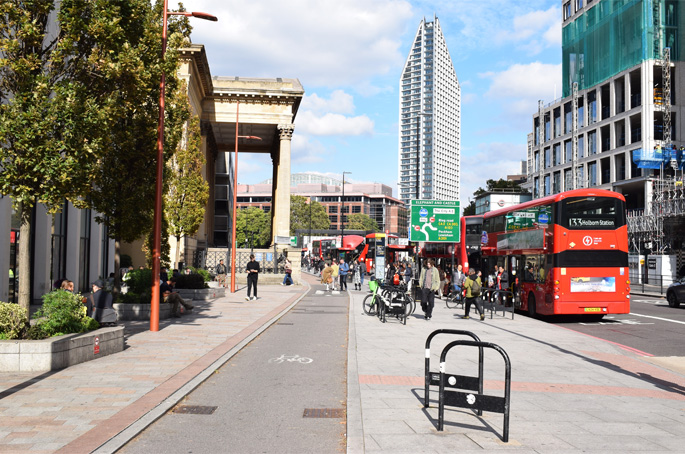On the second anniversary of the Apprenticeship Levy and as the deadline for employers to claim back their first monthly payments approaches, Highways reveals that only around 13% of the funds have been claimed so far from the scheme as a whole.
A Freedom of Information request shows that the Government has taken in £4.5bn since the first payments started coming in from the controversial Levy, which was introduced in April 2017. However only £601m has been paid out to employers.
Money in: Payment Due Date (22nd of each month) and Amount Received
- 22/05/17 £195,171,629.98 (Month 1)
- 22/06/17 £188,668,095.99
- 22/07/17 £210,550,413.44
- 22/08/17 £237,077,222.10
- 22/09/17 £195,059,689.62
- 22/10/17 £211,191,565.98
- 22/11/17 £191,597,685.19
- 22/12/17 £212,714,218.40
- 22/01/18 £213,926,579.58
- 22/02/18 £217,415,263.71
- 22/03/18 £224,078,466.80
- 22/04/18 £290,812,377.79
- 22/05/18 £212,618,043.96
- 22/06/18 £206,615,797.05
- 22/07/18 £224,579,693.49
- 22/08/18 £218,120,918.26
- 22/09/18 £211,457,765.80
- 22/10/18 £217,750,882.50
- 22/11/18 £213,236,439.39
- 22/12/18 £209,569,784.51
- 22/01/19 £224,205,365.85
- Total £4,526,417,899.39
Monthly Payments Out
- May 2017 £0.00
- Jun 2017 £0.00
- Jul 2017 £2,000,000.00
- Aug 2017 £4,000,000.00
- Sep 2017 £4,000,000.00
- Oct 2017 £10,000,000.00
- Nov 2017 £16,000,000.00
- Dec 2017 £21,000,000.00
- Jan 2018 £21,000,000.00
- Feb 2018 £28,000,000.00
- Mar 2018 £30,000,000.00
- Apr 2018 £32,000,000.00
- May 2018 £37,000,000.00
- Jun 2018 £39,000,000.00
- Jul 2018 £41,000,000.00
- Aug 2018 £43,000,000.00
- Sep 2018 £40,000,000.00
- Oct 2018 £47,000,000.00
- Nov 2018 £65,000,000.00
- Dec 2018 £61,000,000.00
- Jan 2019 £60,000,000.00
- Total £601,000,000.00
The news follows a damning National Audit Office report which found apprenticeship numbers have fallen by a quarter, costs have doubled and nearly a third of providers fell below minimum standards under the government new strategy. There has also been an outpouring of criticism from industry.
The latest figures obtained by Highways actually show an increase from the first year of the Levy, when Highways revealed that less than 10% had been claimed back. As the above figures show, payments from the Levy scheme got off to a slow start with nothing paid out in the first two months.
The monthly recuperation by employers has been steadily rising but appears to have stalled in the last two months.
There had been complaints raised within the industry at the speed of approval for highways apprenticeships through the Institute for Apprenticeships.
An apprenticeship for a highways electrician/service operative had been ready for some time however it took until August last year for the highways maintenance skilled operative to be approved.
Chief executive of the Institute of Highway Engineers (IHE), Richard Hayes, told Highways: 'The IHE calls on government to review the Apprenticeship Levy and ensure that the industry is able to train and upskill its employees for the challenges we face in maintaining infrastructure.
'These figures indicate that industry is not able through the current apprenticeship arrangements to use the levy effectively. The process is too bureaucratic and is not designed to produce highly skilled employees, indeed academic programmes have had to be slimmed down to meet the set requirements.'
Labour's shadow skills minister Gordon Marsden MP said: 'These figures are another sign that the levy is not working for business and simply won't get us the step change in numbers and quality that we desperately need.
'Given the demand for more engineers and other skilled professionals to take forward industrial strategy over the next 10 years, it is deeply concerning that employers in the sector are so despondent about the way the Government has handled the levy.
'We have called for some time for Ministers to reassess how the Levy can be used more flexibly to meet the challenges of the 2020s.'
A Department for Education (DfE) spokesperson said: 'Spending on the apprenticeship programme is demand-led, and employers can choose which apprenticeships they offer, how many and when. We do not anticipate that all employers who pay the levy will need or want to use all their available funds – but they are able to, according to their individual training needs.
'We're listening to business as the apprenticeship programme develops and introducing flexibilities to help them take full advantage of the reforms.'
The Levy has been subject to a number of partial reforms since it was first launched.
The DfE said businesses can now transfer up to 25% of their levy funds to other employers, as of 1 April 2019.
For new apprenticeship starts from 1 April 2019, the co-investment rate has reduced to 5% so that the Government now pays 95% of the cost of apprenticeship training.
This is aimed at reducing the cost of training for all non-Levy-paying employers and for those Levy-paying employers that have used up their Levy funds.
Levy-paying employers create accounts to receive levy funds to spend on apprenticeships. The DfE then adds a 10% top-up. As employers select apprenticeship training, deductions are applied to represent these costs. Employers have up to 24 months in which to spend the funds entering their accounts.
Employers are required to report the Apprenticeship Levy by the 19th day of each tax month, and pay the amount due no later than the 22nd of the month.
































